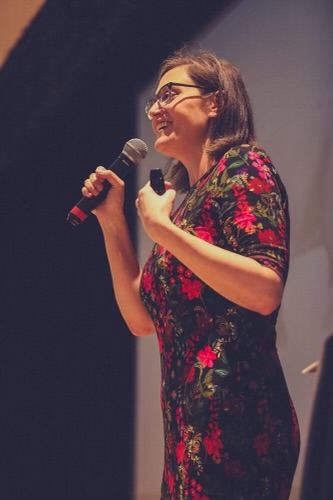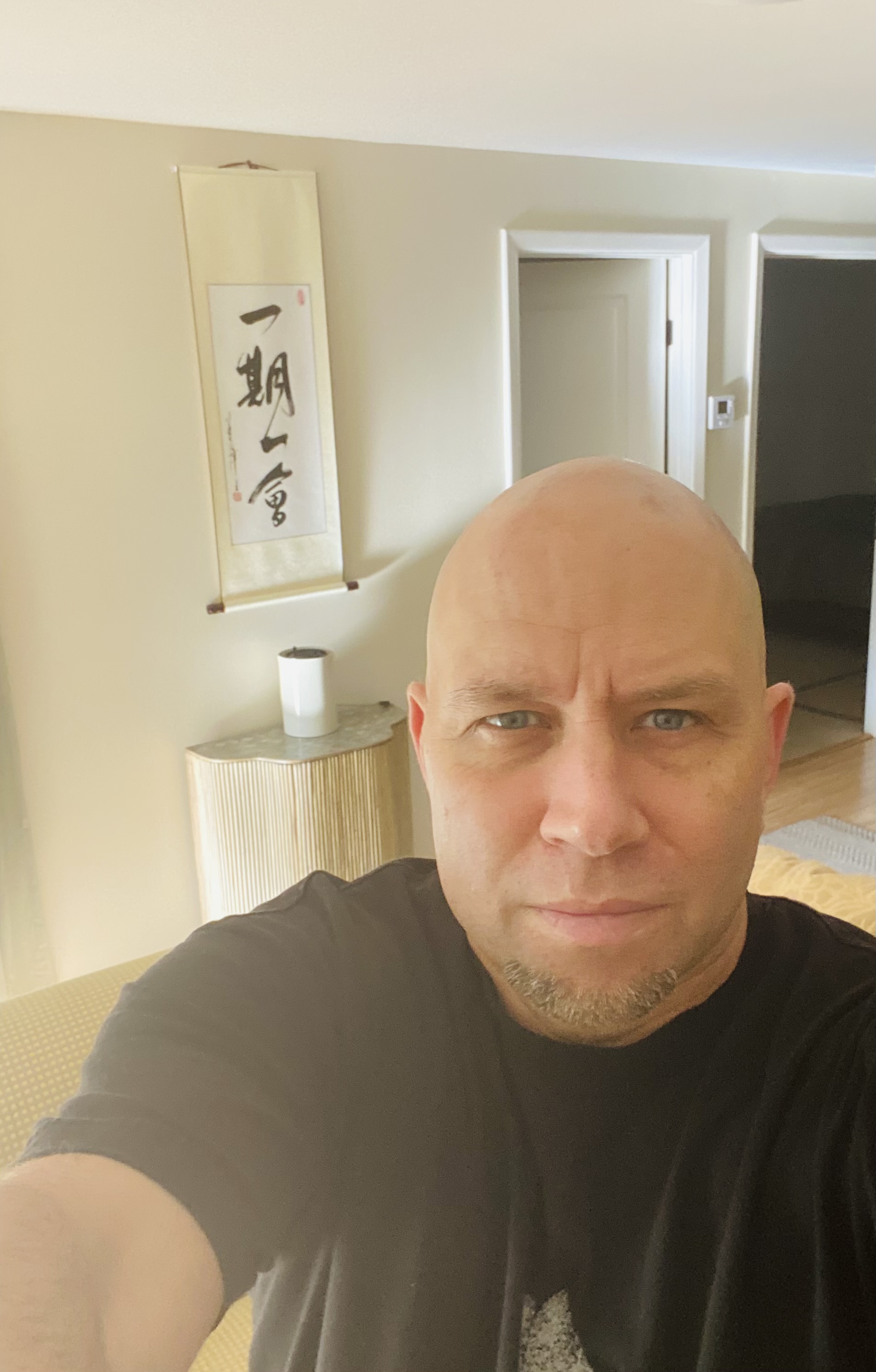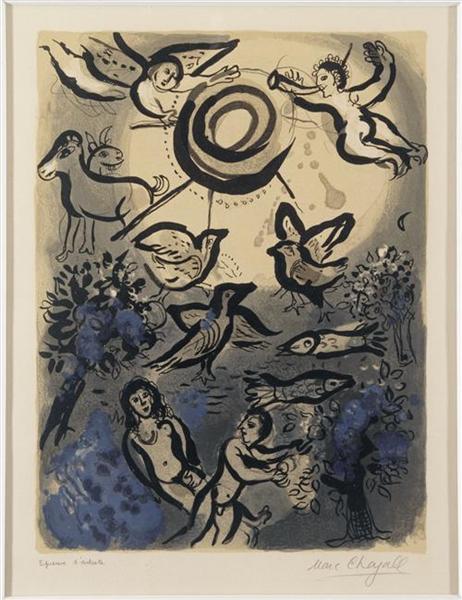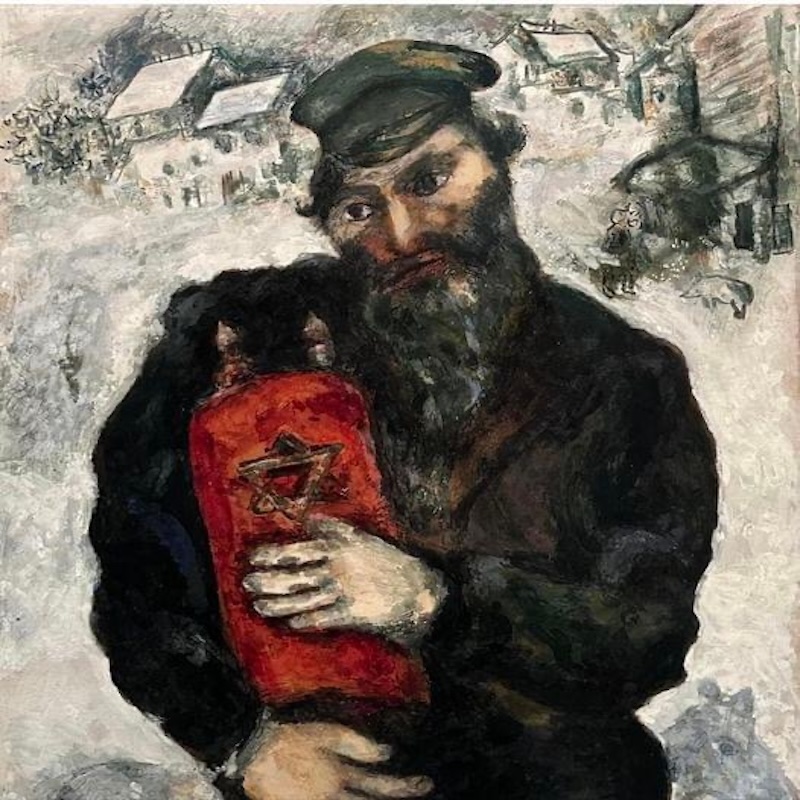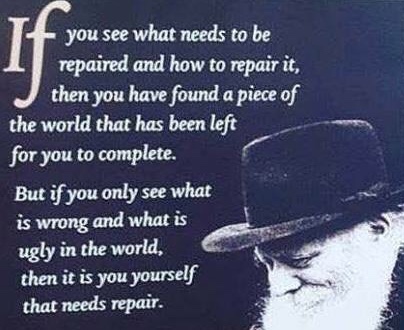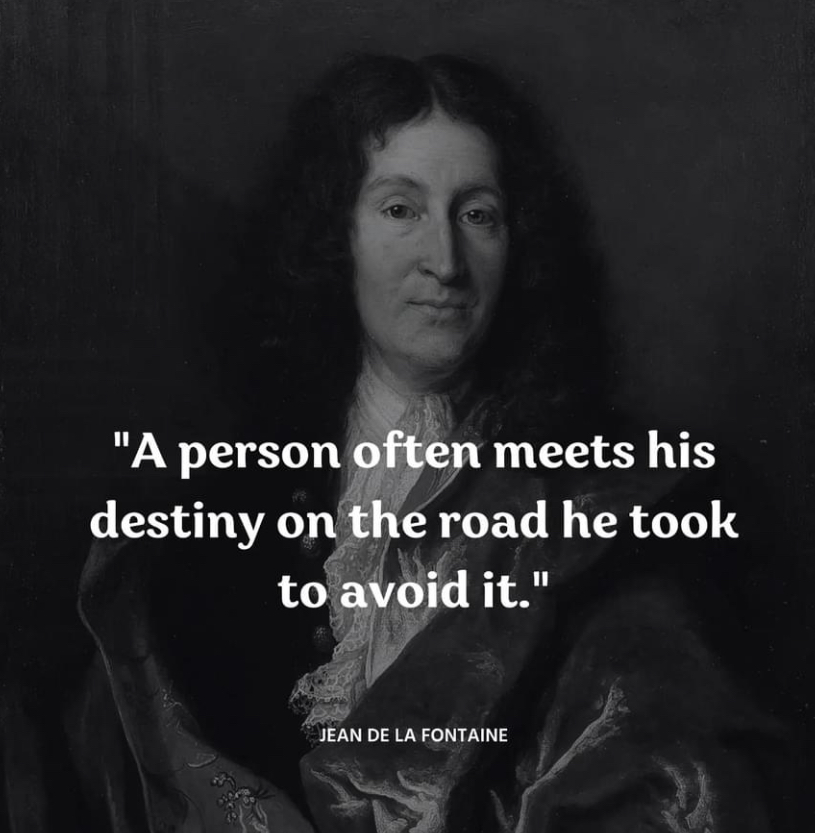Episode Transcript
[00:00:00] Speaker A: Yeah, I think the only way to understand Jewish relations to other traditions is we gotta roll it back.
Okay, sure.
That's always how I find it. I like to go back to square one. So square one was once upon a time, there was a guy named Adam. But the light was too intense. He didn't earn his holiness, and therefore he spilt it quickly. And it went to a horrible downward spiral that 10 generations later was this Shoah, this holocaust that annihilated the world. And only one man survived it by the name of Noah. And he forced to look out the window and watch the destruction of the world. He saw the entire holocaust of all mankind. And it so deeply penetrated him that he dedicated the rest of his life to making sure that the world would never return to that again. And so all of mankind became rebuilt through his three sons and their families. And he created an order to these three sons, each one understanding their role in the world. And by understanding their role in the world, he created a paradigm through which the whole world could live in harmony. But he also warned that if this harmony or this order was upset, it would only lead to war and it would only lead to chaos. And so, despite his wonderful efforts and that energy to rebalance the world still exists in this world. But it became lost. And so God realized that since the world itself as a collective, wouldn't necessarily bring about tikkun olam, the fixing of the whole world. So once upon a time, 10 generations later, there's a man who chose God. And because he chose God, God chose him. And his name was Abraham. And Abraham built a family. This isn't Judaism is not a religion. It's a family of people who descend from Abraham. And they converted from being a family to becoming a nation at Mount Sinai. All Jews are converts. Everybody converted at Mount Sinai. Abraham was not Jewish. Isaac was not Jewish. Jacob was not Jewish. Moses wasn't Jewish. Moses was a convert. All the Jews were converts. At Sinai, the covenant was made where this particular nation accepted upon itself to do the work that the world might not do. Doesn't mean that the world won't do, but might not do. This was the safegap people. Their job was to serve the world, to bring the light into the world, not to make the world Jews. It's against Jewish law. To Mitch, Nice. And to try to attract converts, because the belief is that God made the whole world. There's only one God. It's not like one God up there creating Chinese and another guy creating Africa. And they're fighting for the market and so therefore, it's about bringing the rivers out of the Garden of Eden to the entire world to help the Buddhists become successful Buddhists, if you will.
And through doing that, we serve the world because we serve God. So that's our function. That's why we were given center stage, either in terms of our real estate in the Middle east, because you don't need earth to be a Buddhist, you don't need a piece of earth to be a Christian. But Judaism is not about that. It's about bringing God's light into the world. And therefore it needs a physical platform where the whole world will stay focused on it. And my gosh, look at the world today. It's always been. It's like unbelievable. The whole world is obsessed with everything that we do in Jerusalem. You know, God forbid we build a home. The whole world outside talks about homes for the homeless. We build homes for the homeless and it's like worse than the Iranian nuclear bomb. It's insanity. But what it really is showing is a connection. In fact, I'll tell you something as a secret. The people who are the most intense anti Semites, they are the ones that really love Jews the most. I know they would turn in their grave if they heard that. But the reason is because the opposite of hatred is not love.
Love and hatred are the same energy. The opposite of love and hatred is apathy. These people don't have apathy. They have real hatred for the Jew. Why? Because it's a frustrated love. Because they know that there's something here that we're not delivering to them. So therefore, the relationship of nation, this people, to all the other families of the world is that we are here to serve them. That's our job. And that's why we want to build a third temple. Not one mosque where only one religion can live and pray and the rest of us are considered inferior, but rather a temple of God. Not even Jewish. The third Temple, a temple of God where all human beings together, side by side, can pray together to the same God.
[00:04:38] Speaker B: Really these things serve for us to increase what we feel is our obligation to contribute to our community, our global community. We have obligations to fulfill.
[00:04:49] Speaker A: Right? I think at the end of the day, you know, there's a famous Hasidic teaching. There was one of the wonderful Hasidic masters, was known as Zusha.
And he said, After 120 years, when I come before the divine heavenly court, they're not going to ask me why I wasn't a Moses, why I wasn't a Rebbe. Akiva or a Hillel. They're only going to ask me why I wasn't Zusha. And Jews do not believe in the concept of Atlas. We do not carry each of us the world on our shoulders. We only carry the portion of the world that matches our shoulder span.
And so sometimes there's a very beautiful story. The Baal Shem Tov. He says, When I was 20 years old, I decided to go out and fix the world. By the time I was 30, I realized, whoo, that's a little overwhelming. I'm going to fix my country.
By the time he was 40, he decided to focus on his city. By the time he was 50, he said, My community. By the time he was 60, he said, you know, maybe I'll just fix my family.
And the truth is, it's the other way around. When we're 20, we're filled with unbelievable energy and power. And the hardest thing in the world is to fix ourself. But if we could fix ourselves when we're 20, then by the time we're 30, we will have built a home that will then, by the time we're 40, serve as a symbol to our community. And our community, by the time we're 50, will have already instructed our nation. And our nation, by the time we're 60, will now be a light the whole world. There's a beautiful little story, if I may really quickly. I don't know if it's true, but it's cool. I used to use this a lot when I was a teacher. This story is actually of a teacher in, like, third or fourth grade, and the kids are, like, running amok. And she needs to buy herself a few minutes of R and R. And so she knows that her kids are not at all adept in geography. So what she does is she gives every kid in the class a map of the world and says to the kids, cut it up, and then put it back together again, knowing that at least it'll take 20 to 30 minutes. But this one kid, after, like, three minutes, walks up with all the nations perfectly in order. And she says, that's unbelievable. How did you do that? He said, well, I flipped it over and I made a picture of myself. And once I put myself together, I was able to bring the world together.
[00:07:00] Speaker B: Because the theme of the show is creation.
I wanted to pluck a couple topics and see if we couldn't weave them together. Vibration.
So even the Hebrew letters as vibration.
Creation is vibration and its relation to the masculine, feminine, called the soul with two faces, Right? So the Concept of b', sher, then the third would be B'. Sher. That what is destined to be.
[00:07:25] Speaker A: So I gave a class the other day to this amazing group of Transcendental Meditation people in Iowa, and I was showing parallels between Eckankar and Jewish idea of sound and vibration. And we find this in creation because it says, and God spoke. And it was, well, what does that mean? God spoke in his. Is this like a giant Mick Jagger yaya out there? And, like, refrigerators and iPads? I mean, what does that mean? So the metaphorical answer is, if you could just imagine the perfect harmony of completely regimented molecules and atoms.
It's almost like the kid who, you know, he didn't do his art assignments, so he gives the teacher a blank piece of paper, and she says, what is this? What do you mean, what is it? It's an Eskimo in a snowfall.
Maybe I should make snow jokes, you guys in Buffalo.
[00:08:16] Speaker B: No, no, no, it's good.
[00:08:17] Speaker A: Okay. But the point was, is that without any contrast, nothing's visible. Total. Good. Total light is not comprehensible to the human mind. So therefore, when God spoke, so to speak, what it did, again, this is all metaphor. It put vibrations into this perfect molecular structure, and now they created new molecular structures. And this is hinted at when God says to Adam, name the animals. It wasn't like God had risen. Writers cramp. Oh, my gosh. Adam, six days. You know, like Time Bandits. Like, my gosh, you know, like six days here. Could you just help me out? I'm totally burned, man. I'm like, up against the wall. But what it really was, Adam had this, like, spiritual stethoscope, and he could put it against an animal and he could hear the sound that God spoke for that animal to be created.
And inside every element or entity of creation has that element of vibration. And, in fact, even physics. What's the difference between a liquid, a gas, and a solid? It's the molecular speed.
So this is the same idea that the higher worlds, which is closer to that sound, are more ethereal because they're more translucent. And that which becomes furthest from the sound of God are the most physical. But here's the key. The most physical thing is called the stone actually ties into this week's Parsha of Jacob with the stones. But the stone in Hebrew is called an even. One of the words, an even is the letter Aleph, bet, nun, Aleph, bet. Those are the Alphabet. God created the world with the Alphabet. And nun, as we spoke about by Moses, is the fiftieth gate of wisdom. And therefore, when God said to Moses, speak to the rock, God wanted to show the people that there's nothing in the world which is beyond God's reach. Even the rock can open up the 50th Gate of Wisdom.
[00:10:13] Speaker B: Could we segue that into the notion of the masculine and feminine B' sher that?
[00:10:19] Speaker A: Yeah, definitely. I was going to go there. I just wanted to see if you wanted to say something like step by step.
So the word Adam, which is translated as the word man, does not mean M A, L, E. It's a title for a human. But a human in Judaism is a male, female component together.
A male alone. A female alone is not called man or human. It's only male, female as one. Now, in esoteric teaching, man and woman were named, created at the same exact moment. And they were attached, but they were back to back, and they became severed in order to reunite face to face.
Now, just as a tangent, but you'll understand where I'm going with this. God willing. The Gemara Enida says that when a baby is in its mother's embryo, it learns the entire Torah with an angel. And it has a candle that burns on its forehead that allows him to see from one end of the universe to the other, from the beginning of time to the end of time. So the baby in its mother's embryonic sac is accumulating all the wisdom of creation. However, at the moment the baby is about to be born, this really nice angel suddenly gives him a sucker punch and hits him right under the nose, above the lip, that little, like, lips that I don't know how you describe, but that line that comes down from the nose to the mouth, I know.
[00:11:47] Speaker B: Just what you're talking about. Yeah.
[00:11:48] Speaker A: Yeah. And just as that moment the baby's born, it forgets everything. That's probably like if you knew how to speak baby.
The baby say, what the right.
It's all like, what?
There's slime.
I've been bodied.
So. But what so personal. The question is, what was that all about? Well, the answer is that there are many times in our lives, no matter who we are, somebody says something you never heard before, but you'll say, whoa, that sounds correct. Now, note the emphasis on the word sounds correct.
Because it's in our bones, what is true. It's in our. We were created in truth.
[00:12:29] Speaker B: There's a deep intuitive wisdom that is given that is not heard of as much as maybe we could that would be so beneficial.
[00:12:39] Speaker A: So, therefore, this is the same idea of male, female, the reason we were created as one is because every person is male and female. There's no such thing as a male male. A male has a soul, which is X part male and Y part female. I was making a little pun on the DNA there, but there's X and Y.
And a woman has part male and part female. Because if a male had no female, he couldn't relate to a female and vice versa. If a female had no male, she couldn't relate to a male. And therefore we each have male female in both of us in order that we are able to unite and reunite. In fact, the Talmud says male and female are like different species, but the miracle of male and female uniting is like the miracle of fire and water. Uniting, which is actually the word for heaven in Hebrew. Shemayesh, fire and water.
And therefore, if you look carefully at the name of Ish and Isha, which is male and female, this is something everybody knows. But I'm going to bring it to a higher level, if you'll allow me.
That is the word Ish and Isha have both of them, the word fire in them.
Now, the difference between Ish and Isha is that the male for Ish has a letter yud, and the word for Isha, woman has the letter hey. Otherwise they both share the two letters alashin, which spel fire. Now, the idea is as follows. The letter Yud and the letter hey are part of God's name. So if a male and female unite and the function of their marriage is to give to each other rather than to take from one another, when people enter marriage, God forbid, thinking this is going to be the answer, this is exactly the person I was looking for because he's got this money, because she's so beautiful. Because what I get, what I get, what I get when a person has that. King Solomon said like this. There are two verses. One says, I found more bitter than death is the woman. And the other one says, matzah tov, matzah Isha. One who founds good has found a wife. So he resolves, the commentators resolve. The difference is this, when it's I who am looking for the woman, in other words, it's really I, I'm looking for me. And the woman is going to be merely a reflection of me or a mirror of me. And of course, this goes vice versa. For the woman looking for the man, then that relationship can become more bitter than death.
Because at the end of the day, nobody wants to die for another person. A husband and a wife want to live for another person. So if they start to feel that bitterness, like, my gosh, what am I doing in this relationship? I have no expression. I've lost myself to this other person. Ultimately there'll be a revolution. But when it's the other relationship, where it's Matzah Isha, first I'm looking for the woman, then matzah Tov, in other words, first I'm looking for my missing hand.
I am not complete without that other half. Therefore I am beholden to this other half. Therefore I am very thankful to this other half. Therefore I lay out a red carpet to this other half. What can I do for my other half? Because without you, I will never have completion.
So that relationship is a relationship of service that brings the Yud and the hey together to create God's name. But if it's not there, then all that are there is fire.
Now, on a deeper level, we know that G D's name has two other letters.
That's the letter VAV and the letter hey. So seeing this in the realm of holiness, I hope the idea of the vav represents the letter VAV represents the male organ and the letter hey represents the female genitals. So therefore, in a moment of lovemaking, when the souls and the body are all aligned, that they're coming together in order to give to each other, to create a wholeness and therefore make their home a temple where G D resides. Then the entire name of Yudin hey in the spiritual and Vavin hey in the physical are completely united, one and whole in this world. And that's how we create that relationship of beshert. Because G D will therefore lead according to the way that God sees the person's sincerity in what they're seeking in a mate. G D will align the stars, so to speak, that he or she will find the one that was actually decreed for them to always be together. Because that's why it says, if I may, I don't know how we are in time. But just take a little bit further.
In Sota, it says that a first person's marriage is their, what you call beshert. And a second person's marriage is according to their ma', asim, according to their deeds, if you will. So there's a problem with that. How do you deal with somebody like King Solomon who had, like, you know, a thousand wives? I mean, gemara only goes one and two. King David had over, you know, 18, according to one opinion, maybe even more so.
What does that mean, 1 and 2?
So it doesn't mean 1 and 2. Chronologically, in time or linear time. It means primary and secondary.
Sometimes a person has to go through a secondary relationship first, which is in alignment with who they are in terms of their actions. Actions being thought, speech and action, in order for them to learn some lesson from life that allows them to align themselves with who they really are, so they can then come to their primary mate, which is according to what had been destined.
So it doesn't necessarily mean that a person's first marriage is their marriage of besher or destiny. It just means that their primary marriage, which, God forbid, they might not even get to in their lifetime if they don't really work and align themselves properly. But that primary marriage will only come about when the person has really aligned themselves properly in the alignment of service of how may I give rather than how may I receive?
One of the things, the question that came up, which I thought was a brilliant question, with these gentlemen and women from the TM movement. They said, is it possible that through rabbinic transmission, the human mind has unwillingly polluted or diluted the initial divine revelation by having trans passed through human mind? And I thought that was a really clever question, and I'll share with you, and that is that the fifth book of the five books of Moses, which we called, you know, the Torah or Bible, was called the book which Moses wrote. Mishnah Torah is the book that Moshe wrote. And the fact that Moses wrote it, and yet it's still considered as par and equal with the four directly revealed books of God already indicates that there's a partnership in the human or God and human relationship. In fact, one of the commentators who was a Khan of Bracha, once said, when God says in the beginning of creation, he says, let us make man. He says he was actually talking to man. He said, listen, man, I'm going to give you everything you need. Oxygen and water and food and shelter and sun and moon. And so I'll give you everything. The only thing I can't give you is to be a mensch, to be a man. But if you do that, then you and I together, let us make man. We can do it as a partnership. So therefore, at the end of the day, it's funny because again, it comes back to this idea of God. Kabbalah versus man. Kabbalah. We always think that what we're striving for is the highest, most divine, perfect revelation of truth, which we should.
However, at the end of the day, nothing escapes God's reach. Nothing ever got screwed up. Nothing ever went, whoops. It may seem like that to us in our transient moment, living in this particular vertebrae in the spine of time, but in God's image, there's only now, there is no then. It's all under one canopy. So God's got total control.
So therefore God in God's total control, if you will. And here's the irony, you know, as the Rabbi once said, he says, don't call it the garden of paradise, call it the garden of paradox, but God's total control allows it to go out of control by allowing man to mingle. And by allowing man to mingle even in our mistakes, the mistakes somehow become holy because that's the process of what this real exercise in this world is about. Gemara Baba Matziah tells an incredible argument between Rebbe Eliezer and Rabbi Yeshua. And Rabbi Yeshua was the head of the Bethin, the court. And Rebel Ezra was the individual who was trying to fight his case on a very technical issue.
And the court, led by Reb Yeshua said, rebeliezer, I'm sorry, you're wrong, we're right. And Rebbe Lezar said, you out of your mind? Of course I'm right and I will prove it. And he turned to the trees and he said, shoot out of the ground. And all the trees shot out of the ground like miss into the air. And Rabbi Yeshua went, ho hum, humble and said, what? And then he turned to the waterfalls and he said, reverse your course. And suddenly these huge Niagara waterfalls started going upwards. And Rabbi Shu went, ha ha. Wonder what's on TV tonight. How boring. And Rebbesha said, are you kidding? He said, I demand that the walls of this very courtroom full and they started to fall. And Reb Yeshua stood up and he said to the walls, don't you dare. So the walls leaned, they half leaned, like half falling in respect to rebuiezer. And they remained standing halfway in respect to Reb Yeshua. So Moses says, okay, this is how you guys are totally out of your mind. I'm bringing God into this mix. And a voice comes out of heaven and says to I don't understand what's going on here. The law is always like, rebeliezer, why are you arguing with him? And Rabbi Yeshua said, excuse me, God, go mind your own business and go back to heaven.
This is the Gemara. And right after that, Rabnasan met the prophet Elijah, Eliyahu. And he says, what did God say when that happened? I mean, Eliyahu, Elijah, you were in heaven that moment. You watched us in the heavenly court. What was God's reaction. He said, God laughed with joy. And he said, I'm so happy. My children have defeated me.
This is really the deepest of the deepest of ideas.
This is the human capability of holiness that in. In fact, lo b Shamayimhi, it's not in heaven, it's in earth. And even if we make a mistake, we have a holy right to make that mistake, because that's part of the process that God gave us to allow us to take the training wheels off and ride the bicycle with just two wheels.
And this is hinted at. There were two great Hasidic rabbis who were arguing.
And one rabbi said, you know what if I were God, meaning that I had at my disposal and the infinity of infinity of all options. In other words, I was omni, etc. I could do anything in any way. If the purpose of creation was to create a scenario where I could elevate beings of wisdom from step one to step two, then having the infinity of opportunities in order to be able to do that and know that that's what, at the end of time, the end of day will have been accomplished. I could have done it in a way where mankind would have suffered less, because since I have the infinity of all options and I can still accomplish the ultimate goal of what creation was created for, I could have done it in a different way where there would have been less suffering.
And the other rabbi listened to him. He says, you know what?
If I were God and I had that same endless, infinite options of all the options of infinity at my disposal, I would do it exactly the way it's happening, right? Because at the end of the day, it is God who does have that infinite options, and this is the way it's happening. In fact, there's a very interesting Zohar in the section of the Torah called Elu mishpatim. These are the judgments. The Zohar actually translates that. It's in Aramaic, of course, but it's ala de galgalehen. These are the reincarnations. That's what the Zohar says there. And a great rabbi of the last generation, the Chav, explained the Zohar. And I think in a very beautiful analogy, he says a guy goes for Shabbos to some town as a guest, and he's in the synagogue on Shabbat morning with his host, and he's, you know, packed synagogue, several hundred people. And now it comes the time of the reading of the Torah where they call up different people, seven different people, and he notices that the gentleman who's doing the calling is randomly this guy from over here and that guy from over there, and that guy from over there, and he says. He said, this is crazy. Why doesn't he go to the front row, the first guy, and go, 1, 2, 3, 4, 5, 6, 7. Why is there no order? It's chaotic. And his host says, the problem is you're only here for one Shabbat. But if you came all the time, you would know that that man up there has a little box with everybody's name in perfect alphabetical order.
And so that's the thing. We only come in, so to speak, to this one incarnation.
But when we will be able to see in the next world all the incarnations, we'll be able to see the perfect harmony and the perfect order. But this world is not designed for that. This world, as we said, was a creation of darkness and evil because it's a world of action and opportunity to give us a chance. The Zohar says, when a person is born in this world, they're like a blazing sun. But if they navigate correctly through this world, when they leave this world, they're like an entire galaxy.
So that's why this is a world of opportunity. Not a world of truth, but a world of opportunity to overcome what we see through our wisdom to what we know.
[00:26:33] Speaker B: Thank you so much, Gedalia.
[00:26:35] Speaker A: Totally my pleasure.
[00:26:36] Speaker B: Wishing you all the best.
[00:26:37] Speaker A: Amen. You, too. Holy, bro. Good things.
